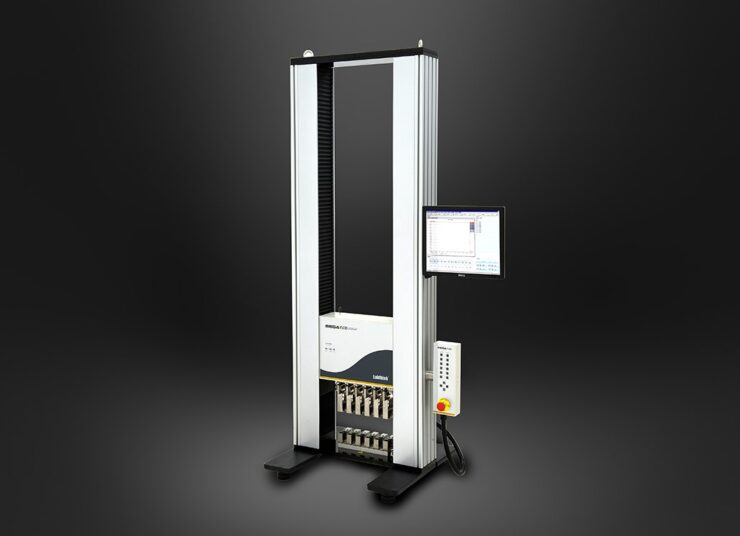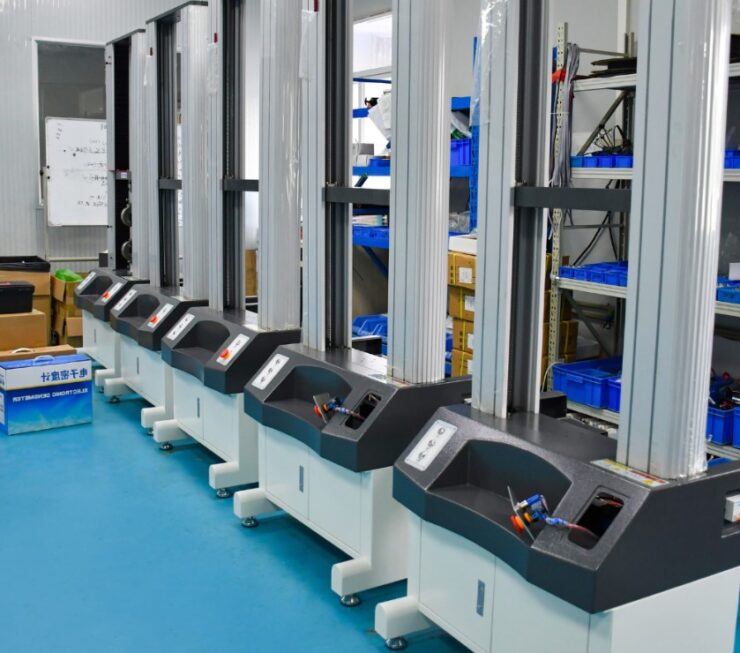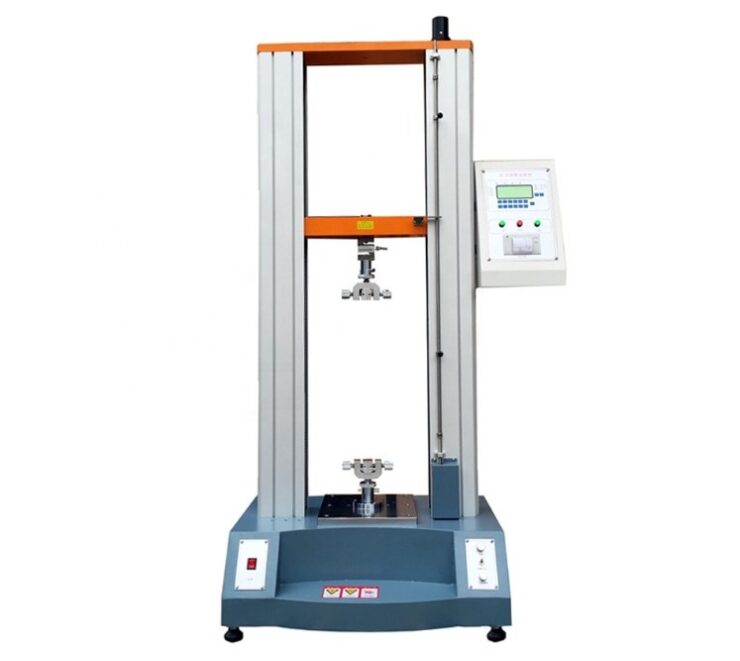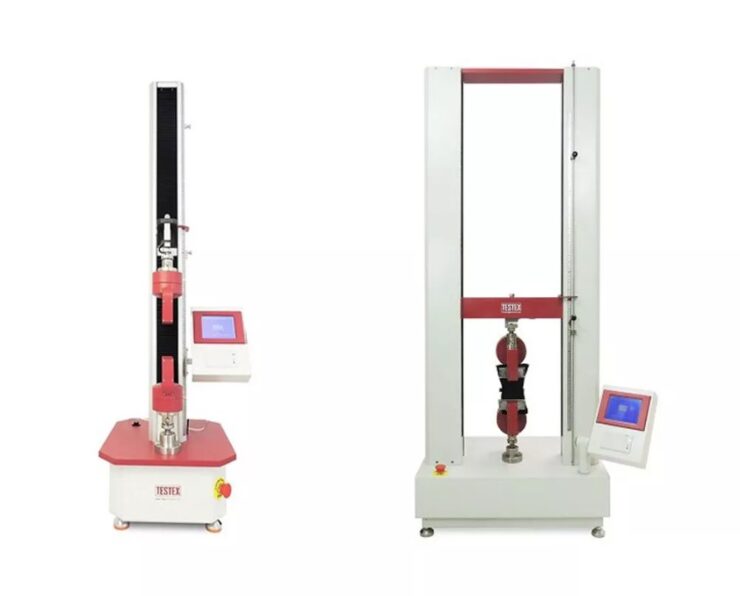A tensile tester is a device used to measure the tensile strength of a material. This is done by applying a force to the material in order to stretch it and then measuring the amount of force needed to break it. By doing this, you can determine the maximum tensile strength of the material.
There are many different types of tensile testers, each with its own set of specifications. So, choosing one can be quite overwhelming. So, in order to help you choose the right one for your needs, we’ve decided to teach you all about them – including how they work.
What Is A Tensile Tester Machine And What Does It Do?

A tensile tester machine is a device that is used to test the strength and elasticity of materials. It works by applying force to a material sample, typically in the form of tension, hence the name, and measuring how the sample responds to that force.
Tensile testing is an important quality control process for many industries, as it can help to ensure that products are safe and fit for their intended purpose. Namely, it can help to identify potential weaknesses in materials before they are used in products.
What Is A Tensile Test?
A tensile test is a mechanical test in which a material sample is subjected to a controlled tension. The resulting stress-strain curve can be used to characterize the material. A tensile tester machine is a device used to perform this type of test.
There are many different types of tensile testers, but all work on the same basic principle: the specimen is clamped between two jaws and then pulled apart until it breaks.
The force required to break the specimen is recorded, along with the specimen’s dimensions (such as cross-sectional area and original length). From these data, various mechanical properties of the material can be calculated, such as ultimate tensile strength, elongation at break, and Young’s modulus.
Tensile testing is an essential part of quality control for many industries. It is used to verify that materials meet specifications and to compare materials from different suppliers. For example, an automotive company might use tensile testing to ensure that the steel used in its car frames meets the required strength and levels.
Also, it kind of goes without saying, but, tensile testing is a destructive test, meaning that the specimen is permanently damaged during the test. However, modern tensile testers are designed to minimize damage to the specimen, and many can be reused multiple times.
The Different Types Of Tensile Testers?

There are two main types of tensile testers: automated and manual. Automated testers are more expensive but offer several advantages over manual testers, such as higher accuracy and repeatability.
Manual tensile testers are typically used for quality control in small-scale operations, such as testing the strength of individual components in a factory setting. Automated tensile testers are used in larger-scale quality assurance operations, such as testing the strength of materials in batches.
Between manual and automated testers, there are many different types of tensile testers on the market, each designed for specific applications, as you’ll see if you check this comprehensive guide out. Between you and us, they’ll do a much better job of explaining the differences than we will.
When selecting a tensile tester, it is important to consider the material being tested and the type of data required. Different materials have different optimal testing conditions, such as temperature and strain rate. The required data will also vary depending on the application. For example, a company testing the strength of steel beams for a construction project will need different data than a company testing the elongation of plastic tubing for a medical device.
Now, for the main event.
How Does A Tensile Tester Machine Work?
A tensile tester machine typically consists of three main parts: the grips, which hold the material sample in place; the frame, which supports the grips and the load cell; and the load cell, which measures the force applied to the material sample.
The testing process begins with the operator placing the material sample into the grips and securing it in place. The operator then enters some basic information about the test into the machine, such as the desired force or displacement.
Once everything is set up, the operator starts the test by pressing a button or flipping a switch. This causes the grips to move away from each other at a constant speed, applying a force (or displacement) to the material sample.
As the material is pulled apart, the load cell measures the force required to keep the grips moving at the set speed. This data is recorded by the machine and used to calculate various mechanical properties of the material, such as ultimate tensile strength and elongation at break.
Once the specimen breaks, the test is complete, and the operator can analyze the results.
Tips For Buying The Best Tensile Tester Machine For Your Business

If you are in the market for a tensile tester machine, there are a few things you should keep in mind to ensure you purchase the best possible option for your needs.
Here are a few general tips:
- First and foremost, you need to decide what type of material you will be testing. There are different machines designed for different materials, so it is important to choose one that is compatible with the material you will be testing;
- Secondly, you need to consider the range of force that the machine can measure. Different machines have different measurement capabilities, so it is important to choose one that can accommodate the range of forces that you anticipate needing to measure;
- Thirdly, you need to take into account the accuracy of the measurements. Different machines have different levels of accuracy, so it is important to choose one that can provide the level of accuracy you require;
- Fourthly, you need to consider the speed at which the machine can operate. Different materials require different testing speeds, so it is important to choose a machine that can accommodate the speed you need; and
- Finally, you need to be mindful of the price of the machine. There is a wide range of prices for tensile tester machines on the market, so it is important to find one that fits within your budget.
By keeping these factors in mind, you can be sure to purchase the best tensile tester machine for your specific needs.
Conclusion
A tensile tester machine is a versatile and essential tool for certain businesses or individuals that needs to test the strength of materials.
By understanding how the machine works and what factors to consider when purchasing one, you can be sure to find the best possible option for your needs.
Hopefully, we’ve made that possible.

